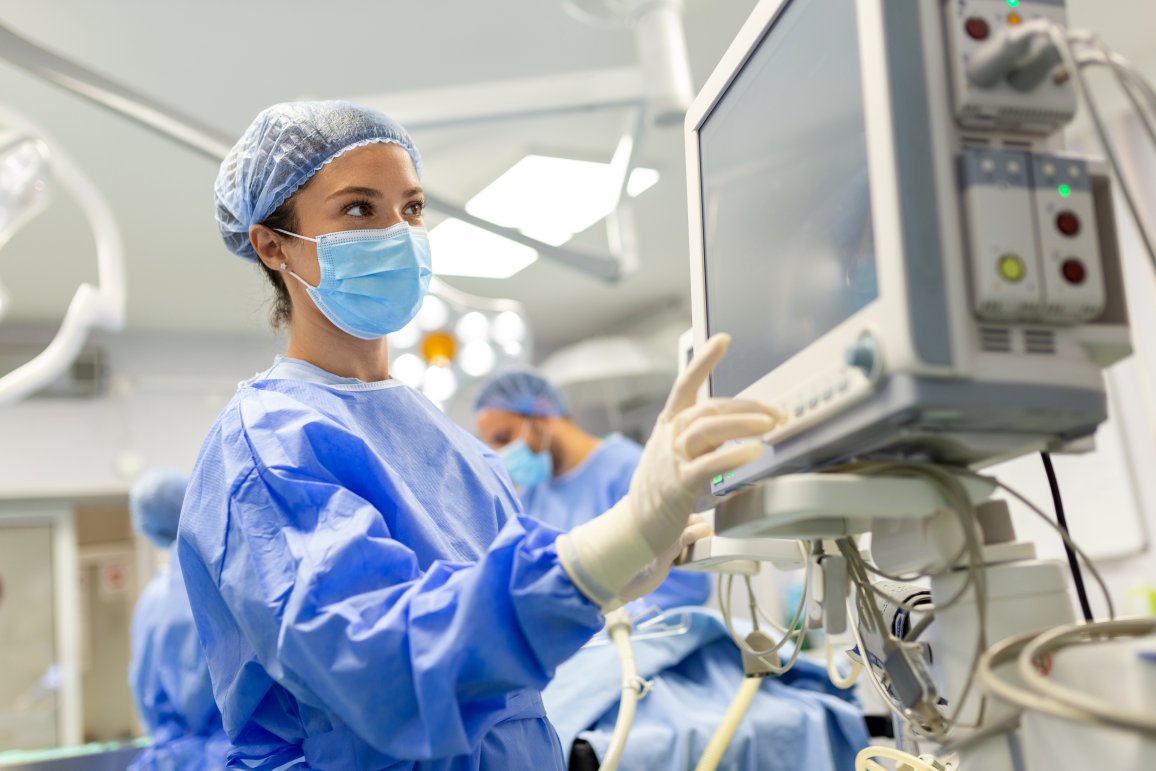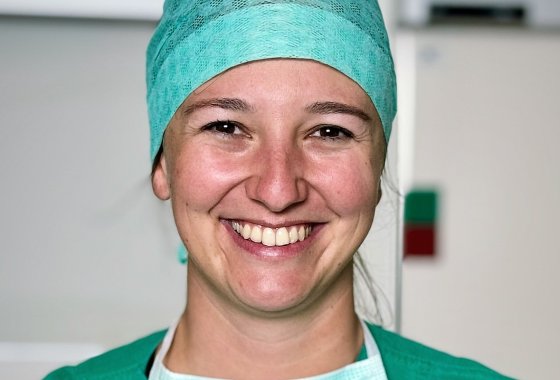Plastic saves lives
What would happen if we banned all plastic from the world overnight? Part 3 of our series ‘A World Without Plastic’: Medicine and health.

No one wants to go back to the past
It glitters and clinks. Glass bottles, ceramic jars, rubber gloves, metal cutlery and bizarre apparatus dominate the scene in the plastic-free hospital. There is a hint of charity in the air, it smells of camphor. It is not entirely clean either. Germs lurk everywhere. For safety reasons, every utensil is cleaned, disinfected and thoroughly sterilised immediately after use. People do what they can and what technology allows.
The historical ambience hardly evokes feelings of nostalgia. When it comes to one's own health and that of loved ones, no one wants to go back to the past. A present and future without plastic is difficult to imagine in medicine. In the absence of alternative miracle materials, there is no utopian potential. Medicine would have to make do with the rustic instruments of the early 20th century. That really hurts.
Life extension and quality of life
Not using synthetic all-purpose plastic really limits what we can do, both in treatment and diagnosis. The best example is medical technology. Every important device is made up of loads of plastic parts – from the electronics to the casing. Defibrillators, ultrasound systems, computer tomographs, stomach tubes, endoscopes, dialysis and ventilation equipment, and so on.
Plastics are lightweight, malleable, flexible, stable, affordable and easy to sterilise. They are well tolerated, physiologically harmless and resistant. These materials form the basis for technological advances and comprehensive healthcare. Without plastics, there would be no modern medical equipment, no intensive care units and no procedures such as artificial heart valves, stents or pacemakers. Compact hearing aids, prostheses, implants and artificial joints would also be unthinkable.
Safety and efficiency in everyday life
Sterile packaged syringes, catheters, blood bags, infusion sets, tubes and plastic cannulas save lives every day and make life easier for chronically overworked staff. The same applies to protective clothing such as rubber gloves, masks and surgical gowns. These disposable products offer the best possible protection against contamination and are available in large quantities worldwide, quickly and at low cost. Safe packaging solutions for liquid or solid medicines are at least as important for healthcare. Some instruments and products could also be made of glass, metal, rubber or fabric if necessary – but this would compromise hygiene, durability and flexibility, and the prices would be too high. Medicine as a luxury good for rich countries? Surely no one wants that.
Waste reduction, circular economy and biodegradable plastics
Plastic has revolutionised medicine and healthcare. However, the material also creates problems: it generates a lot of waste and consumes fossil resources. What to do with used disposable products? For sensitive items that have come into contact with patients, thermal recycling is the only option. But it doesn't always have to be disposable. There is great potential in the reuse of certain products and in recycling. By separating and disposing of used packaging and implementing take-back systems, healthcare companies can significantly reduce their carbon footprint. At the same time, the industry secures valuable resources for recycling.
Manufacturers also have a responsibility. They must design their products for recycling and minimise the use of materials. Design for recycling also plays an important role in medical technology and the pharmaceutical industry. Bio-based and biodegradable plastics offer opportunities for greater sustainability in the future. Improved plastics should also eliminate problematic substances such as plasticisers and persistent chemicals. Nothing is impossible with plastics. That is precisely what makes this material so special.
Change of perspective: External expertise

Dr Sara Fontain from the Department of Anaesthesia and Intensive Care Medicine at Feldkirch Regional Hospital on plastics in healthcare.
In your opinion, in which areas of medicine would care be inconceivable without plastics at present?
Modern medical care – especially in hospitals – is currently inconceivable without the use of plastics. Plastics can be found in almost all areas: from medical consumables such as syringes, infusion systems and ventilation tubes to their packaging. Plastic components are also indispensable in devices such as PCs, ultrasound and CT systems. The diversity and flexibility of this material make it indispensable for everyday clinical practice.
What properties make plastic so essential for certain applications?
Plastic impresses with its versatility: it can be moulded into almost any desired shape, enables sterile production, is durable, lightweight and inexpensive compared to other materials. This combination of functionality and cost-effectiveness makes it the only choice for many medical applications.
What measures can clinics take to use disposable products more consciously without compromising hygiene and patient safety?
First of all, disposable plastic products should always be recyclable. However, the problem at present is that there are hardly any specialised recycling channels for medical plastic waste. For example, here in Vorarlberg, the recycling company Loacker cannot find any buyers who can specifically recycle disposable medical plastic products. Many standardised disposable products, such as perfusor syringes, could theoretically be recycled by the manufacturers, but most of them end up as shredded material in the cement industry for energy production. This is the difference to well-established recycling processes such as those for PET bottles from the food industry. There is also potential for optimisation in packaging. The proportion of packaging in disposable products could be reduced. In areas such as operating theatres or intensive care units, sets containing several disposable products are often used. A targeted and needs-based compilation of these sets would help to avoid unnecessary material consumption.
What other options are there?
Another approach is to use reusable plastic products that can be sterilised after use, such as perfusor syringes or laryngeal masks. This would allow clinics to focus on more sustainable solutions without compromising hygiene standards.
As a general rule, plastic should not be used unnecessarily. Resource-efficient production, conscious demand assessment and the longest possible usage cycles are important building blocks for more sustainable use. Last but not least, manufacturers also have a responsibility: Where possible, biodegradable plastics should be used and global solutions for the safe disposal or recycling of conventional plastics should be promoted. This is because the environmental impact of plastic, especially single-use products, is a well-known and serious problem.
Do you like our texts? Perhaps even so much that you want to use them in your own media? Then please get in touch with us beforehand!
